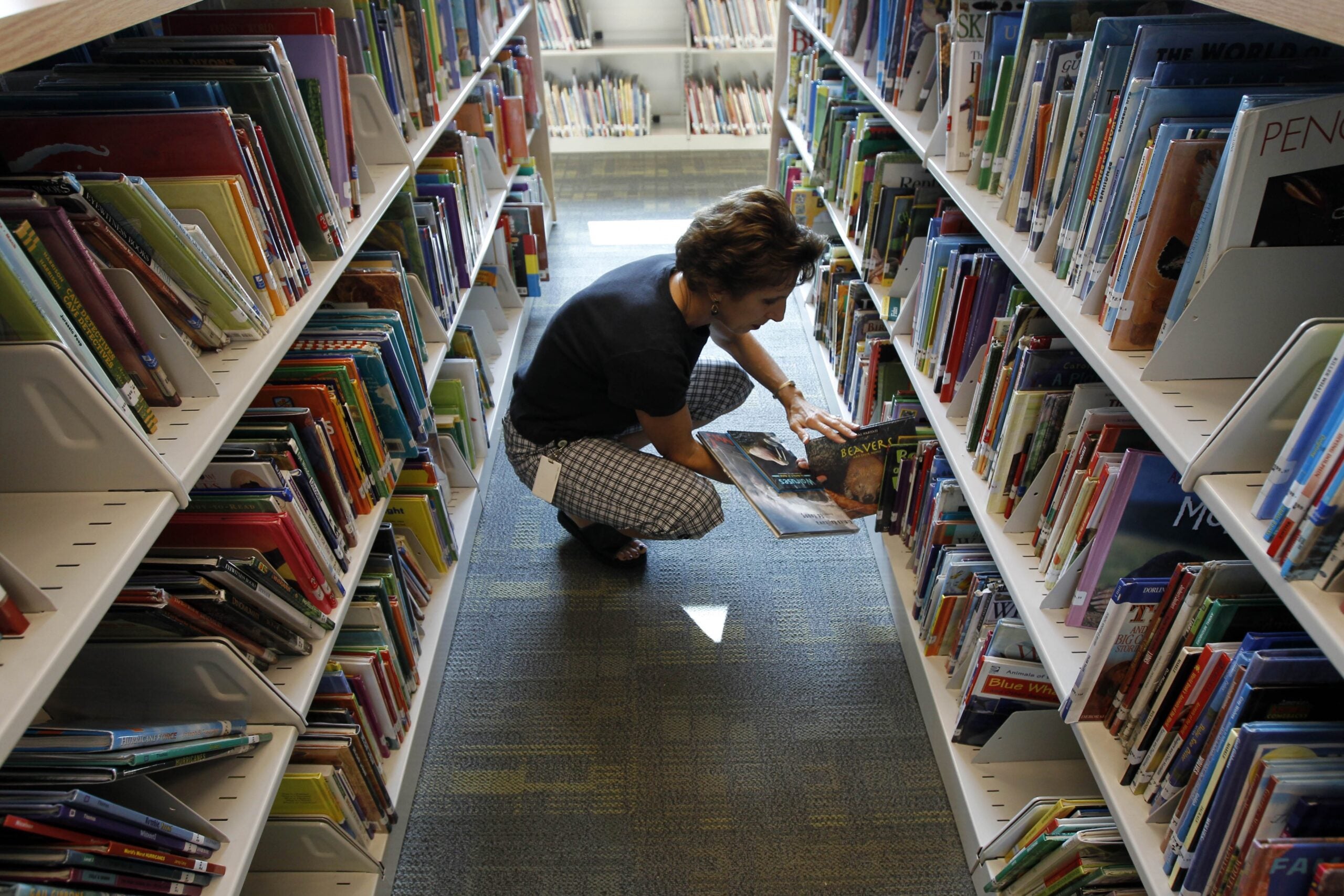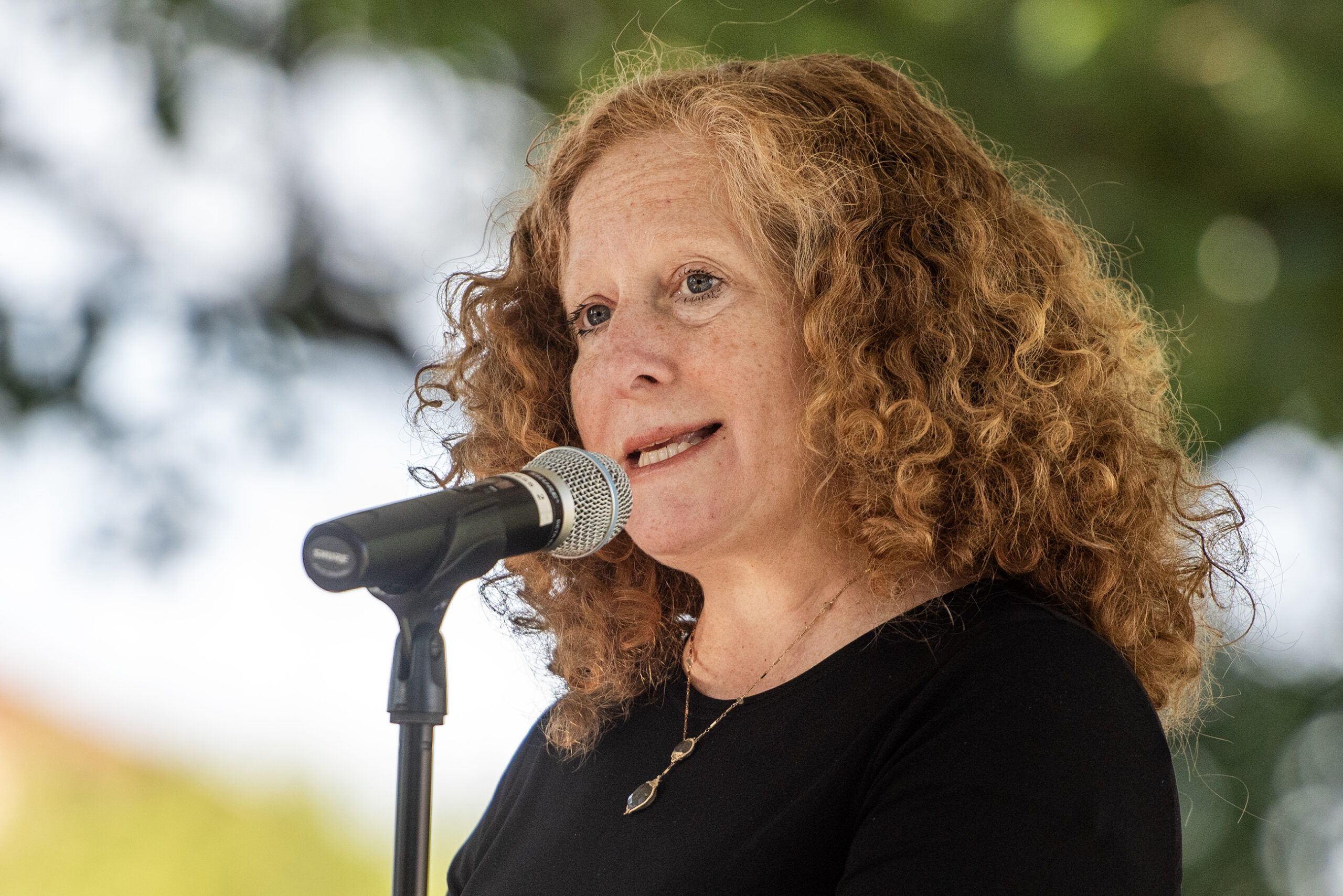Kaukauna Public Library has become the first in the Fox Cities to eliminate late fees.
It’s one of a growing number of libraries across the country that’s abolished late fees in order to better serve its community. Before this change, 17 percent of Kaukauna Public Library users had blocked accounts due to late fees of $5 or more. Kaukauna Public Library director Ashley Thiem-Menning said the policy change has library patrons feeling relieved.
“The goal is not to keep our books in the building but to have people checking them out and enjoying them” she said. “It was disheartening to realize that so many people weren’t coming back that had expired cards or weren’t renewing their cards, probably because of the fines on their account.”
Stay informed on the latest news
Sign up for WPR’s email newsletter.
As of Jan. 1, Kaukauna Public Library patrons will no longer accrue a 10-cent daily fee for late items. The library will also waive fees for late items that are returned.
In Kaukauna, fees on inactive or expired library cards were 2.5 times higher than those on active cards, according to a news release from the library.
“That number shows us that when people accrue late fees, they stop coming back to the library,” she said. “We’re all human. It’s very easy to have things that are returned late.”
Other libraries across Wisconsin have taken similar steps. Libraries in Eau Claire County eliminated late fees last year. The Milwaukee, Wauwatosa and Waupaca area public libraries have discontinued late fees for children’s books.
Late fines have the biggest effect on underserved populations like kids, the elderly and those living on fixed incomes, research shows. Libraries in San Diego, California, eliminated late fees in April after a study showed that half of all blocked library accounts belonged to residents in the city’s two poorest neighborhoods.
Last year, the American Library Association passed a resolution labeling monetary late fines a form of social inequality.
Thiem-Menning pitched the idea of eliminating late fees to the local library board in 2019. The money collected on late charges made up less than 1 percent of the library’s operating budget last year, according to Thiem-Menning. Still, she said, the Kaukauna Public Library required municipal support for the move.
“We’re lucky the city did not ask us to come up with a way to replace that revenue loss,” she said. “They understand the importance of having equitable services for all the members of our community.”
Thiem-Menning said she was inspired by a 2018 TEDx talk given by Dawn Wacek, a librarian in La Crosse. The video has been viewed more than 1.6 million times.
The La Crosse Public Library is located near a Salvation Army and a domestic abuse shelter. Since eliminating late fees, Wacek said she’s seen more families from those facilities coming to use the library’s services.
“A lot of those families were saying they wouldn’t come get books, it was just too risky,” she said. “What I’m hearing from families is that it’s just made a difference in how they use the library.”
Wacek explained that fines aren’t an effective tool for encouraging people to return items on time. In fact, she said, the opposite is true. People may be embarrassed they can’t pay the fine and avoid the library as a result, she said.
“If you owed a friend a lot of money and didn’t have it, would you want to go hang out with them in their house?” she said.
Wisconsin Public Radio, © Copyright 2024, Board of Regents of the University of Wisconsin System and Wisconsin Educational Communications Board.






